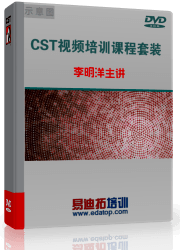- 易迪拓培训,专注于微波、射频、天线设计工程师的培养
首页 > CST > CST使用问答 > The basic difference between Open and Open add space boundary conditions in CST
The basic difference between Open and Open add space boundary conditions in CST
录入:edatop.com 点击:
Hii
Anyopne tell me what is the basic difference between Open and Open add space boundary conditions in CST Microwave Studio?
When i use open boundary condition then i m getting different result in comaprison to Open add space boundary condition.
i don't understand why such things happen n what is the basic problem within that?
plz reply..............
Anyopne tell me what is the basic difference between Open and Open add space boundary conditions in CST Microwave Studio?
When i use open boundary condition then i m getting different result in comaprison to Open add space boundary condition.
i don't understand why such things happen n what is the basic problem within that?
plz reply..............
Hi,
in the help is:
Open (PML): Operates like free space: waves can pass this boundary with minimal reflections. Note that in case of a unit cell simulation with the general purpose frequency domain solver open boundaries are realized by a Floquet port.
Open (add space): Same as Open (PML), but adds some extra space for farfield calculation. This option is recommended for antenna problems.
申明:网友回复良莠不齐,仅供参考。如需专业解答,请学习易迪拓培训专家讲授的CST视频培训教程。
上一篇:Are there any CST Microwave tutorials in the NET?
下一篇:Designing Monopole antenna for WLAN and WiMAX using CST MWS

